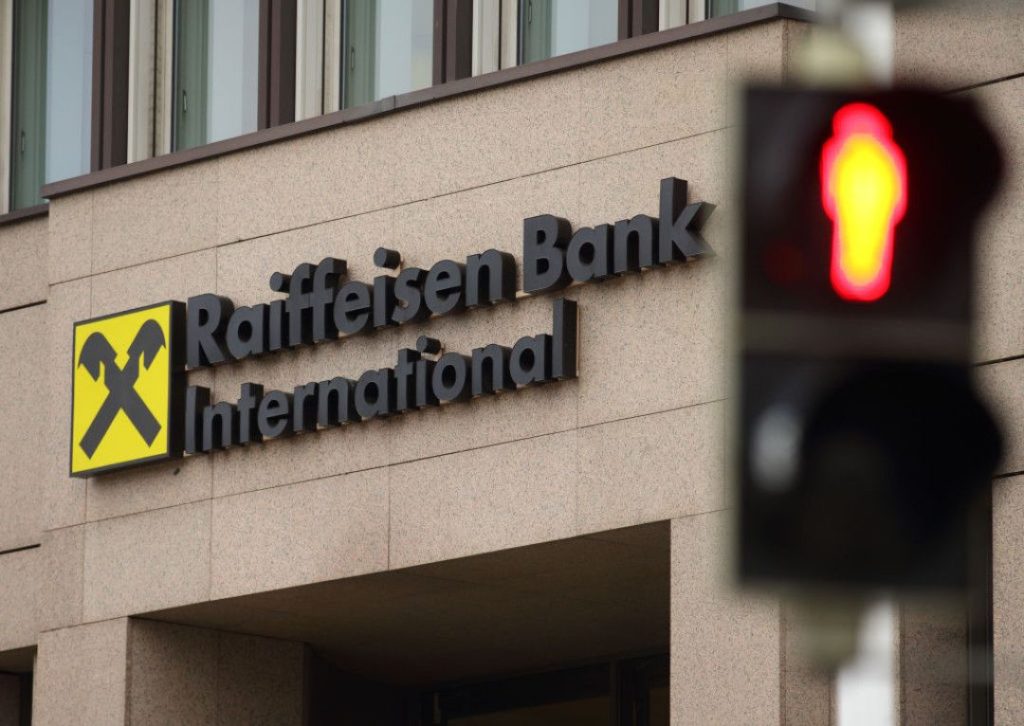Raiffeisen Bank in Austria recently made a decision to replace job advertisements that were found to feature “misleading language,” suggesting an expansion of the bank’s operations in Russia. This change came after the Financial Times reported on numerous job postings for Russia-based positions that touted the bank’s growth plans in the country. However, Raiffeisen Bank International clarified that the quotes in these ads did not align with the bank’s actual actions to scale down its operations in Russia, nor did they reflect its future plans for the Russian market. Despite the intention to sell Raiffeisenbank Russia, the bank stated that essential banking functions will still require hiring or refilling certain positions, although this does not indicate any expansion efforts.
In its annual report for 2023, Raiffeisen Bank International revealed a net profit of 2.4 billion euros ($2.6 billion) and paid 464 million euros ($493 million) in income tax in Russia. Despite this financial success, the bank has faced scrutiny from Ukraine’s National Agency on Corruption Prevention, which has refused to remove the bank from the list of international sponsors of war due to its perceived lack of a clear plan to exit the Russian market. This decision highlights the ongoing tensions and complexities surrounding international banking operations in the context of geopolitical conflicts and sanctions.
The European Council recently adopted a new law on criminal offences and penalties related to the violation or circumvention of EU sanctions, particularly those targeting Russia. This legislation aims to strengthen enforcement and accountability for individuals or entities found to be evading or breaching EU sanctions, signaling a commitment to upholding the regulatory framework put in place to address geopolitical challenges such as the conflict in Ukraine. The approval of this law underscores the EU’s determination to hold accountable those who attempt to subvert or undermine the effectiveness of its sanctions regime.
The decision by Raiffeisen Bank International to address the misleading language in its job advertisements reflects the importance of transparency and accurate communication in the banking industry, particularly in sensitive geopolitical contexts. As financial institutions navigate complex regulatory environments and geopolitical tensions, maintaining credibility and aligning messaging with actual business actions is crucial to building trust with stakeholders and demonstrating compliance with legal and ethical standards. By clarifying its position and intentions regarding operations in Russia, the bank aims to uphold its reputation and credibility in the global financial market.
The scrutiny faced by Raiffeisen Bank International from Ukrainian authorities and the broader international community underscores the broader implications and challenges associated with conducting business in regions affected by geopolitical conflicts. As companies navigate the complexities of international operations and regulatory compliance, they must carefully consider the potential reputational and ethical risks associated with their business decisions, especially in conflict zones or regions subject to sanctions. By adhering to regulatory requirements, engaging in transparent communication, and demonstrating a commitment to ethical business practices, financial institutions can mitigate risks and uphold their credibility in the face of geopolitical uncertainties.
Overall, the developments involving Raiffeisen Bank International, Ukraine’s National Agency on Corruption Prevention, and the European Council highlight the multifaceted challenges and responsibilities facing financial institutions operating in regions impacted by geopolitical tensions. As the banking industry continues to navigate complex regulatory landscapes and geopolitical dynamics, maintaining transparency, compliance with sanctions laws, and ethical business practices will be essential for building trust with stakeholders and upholding the integrity of the global financial system. By actively engaging with regulatory frameworks, addressing compliance concerns, and demonstrating a commitment to responsible business conduct, banks can navigate geopolitical risks and contribute to stability and accountability in the international financial sector.


